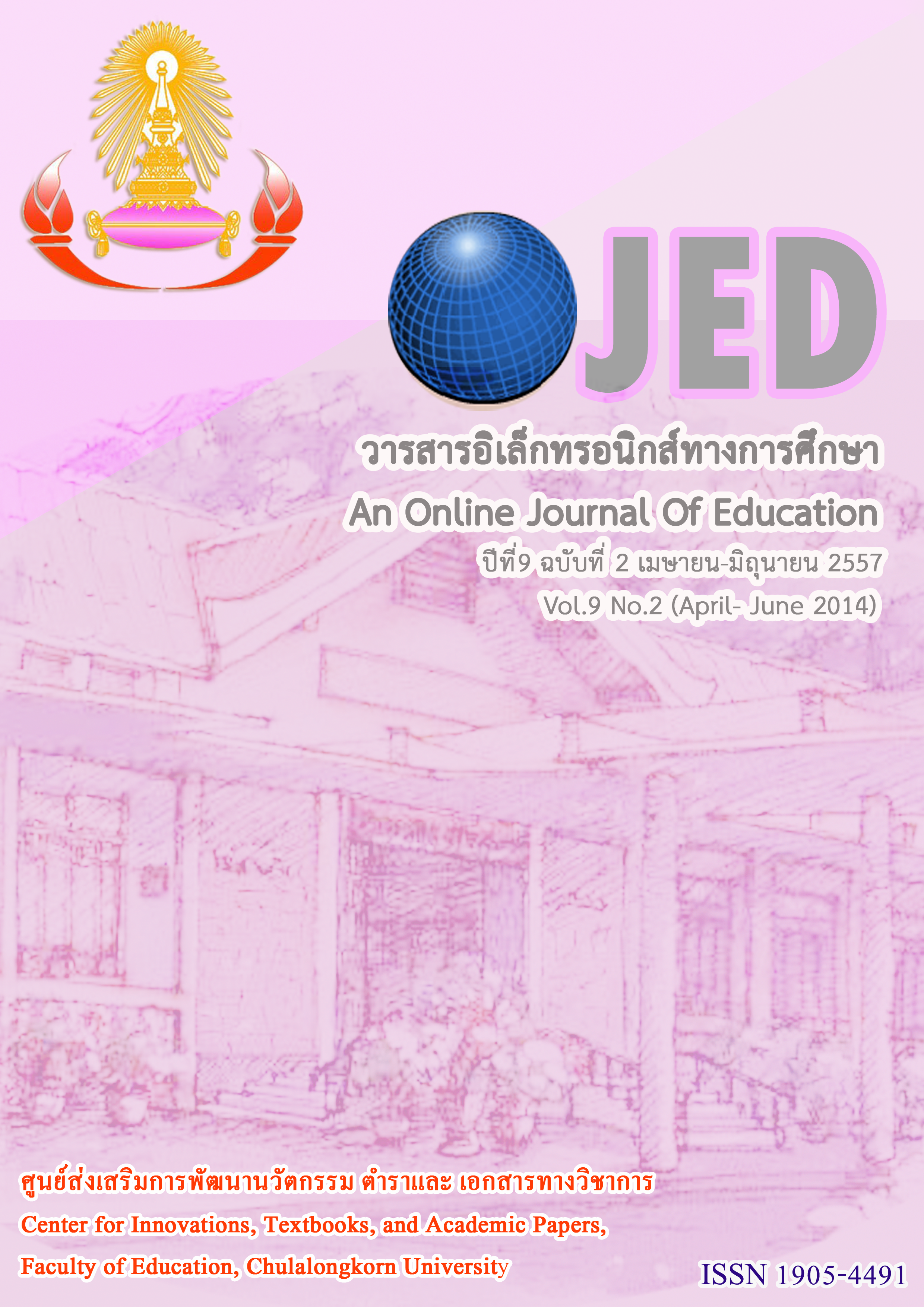กระบวนการเรียนรู้ของเยาวชนเพื่อเสริมสร้างภูมิคุ้มกันทางวัฒนธรรม
Keywords:
ภูมิคุ้มกันทางวัฒนธรรม, กระบวนการเรียนรู้ของเยาวชน, CULTURAL IMMUNITY, YOUTH’S LEARNING PROCESSAbstract
บทคัดย่อ
การวิจัยครั้งนี้มีวัตถุประสงค์เพื่อ 1) ศึกษาสภาวะภูมิคุ้มกันทางวัฒนธรรมตามการรับรู้ของเยาวชน 2) เพื่อวิเคราะห์สภาพ ปัจจัยและเงื่อนไขในการเรียนรู้ของเยาวชนเพื่อเสริมสร้างภูมิคุ้มกันทางวัฒนธรรม 3) เพื่อนำเสนอกระบวนการเรียนรู้ของเยาวชน เพื่อเสริมสร้างภูมิคุ้มกันทางวัฒนธรรม โดยใช้แบบสอบถามเก็บข้อมูลจากเยาวชนอายุ 15-24 ปี ในกรุงเทพมหานคร จานวน 568 คน จากนั้นนำมาวิเคราะห์ข้อมูลทางสถิติด้วยโปรแกรมคอมพิวเตอร์ SPSS FOR WINDOW นอกจากนี้ผู้วิจัยทำการสัมภาษณ์ผู้ทรงคุณวุฒิด้านวัฒนธรรม และผู้เชี่ยวชาญด้านเด็กและเยาวชน รวมทั้งสนทนากลุ่ม (focus group) ตัวแทนกลุ่มเยาวชน ครอบครัว ชุมชน และหน่วยงานที่เกี่ยวข้อง ทั้งนี้ผู้วิจัยจะนำเสนอผลจากแบบสอบถามและการสัมภาษณ์
ผลการวิเคราะห์พบว่า เยาวชนส่วนใหญ่มีระดับภูมิคุ้มกันทางวัฒนธรรมด้านภาษาตามการรับรู้ของตนเองสอดคล้องกับระดับที่สังคมยอมรับได้ ในขณะที่ด้านการแสดงออกทางเพศ การบริโภค และการแต่งกาย ไม่สอดคล้องกับระดับภูมิคุ้มกันตามที่สังคมคาดหวัง เยาวชนส่วนใหญ่เห็นว่าการเรียนรู้แบบเป็นระบบและต่อเนื่องมีประสิทธิภาพมากที่สุดในการจัดกระบวนการเรียนรู้เพื่อเสริมสร้างภูมิคุ้มกันทางวัฒนธรรม โดยเฉพาะวัฒนธรรมการใช้ภาษา ในขณะที่บ้านเป็นแหล่งการเรียนรู้ที่เหมาะสมที่สุดและครอบครัวเป็นบุคคลที่มีอิทธิพลมากที่สุดในเสริมสร้างภูมิคุ้มกันทางวัฒนธรรมด้านการบริโภค การแต่งกาย และแสดงออกทางเพศ ดังนั้นแนวทางในการส่งเสริมกระบวนการเรียนรู้เพื่อเสริมสร้างภูมิคุ้มกันทางวัฒนธรรม ควรมีการสร้างความสัมพันธ์และความร่วมมือกันระหว่างครอบครัวและสถานศึกษา โดยบูรณาการเรื่องภูมิคุ้มกันทางวัฒนธรรมเข้ากับเนื้อหาวิชาเรียนในทุกกลุ่มสาระ พัฒนาบุคลากรในการให้ความรู้และจัดกิจกรรม ปรับปรุงสื่อและกิจกรรม จัดหาแหล่งการเรียนรู้ที่เหมาะสม อันจะก่อให้เกิดการเรียนรู้และได้ประโยชน์จากการเรียนรู้สูงสุด
คำสำคัญ: ภูมิคุ้มกันทางวัฒนธรรม / กระบวนการเรียนรู้ของเยาวชน
Abstract
The objectives of this research were 1) to study cultural immunity of youth based on their perception 2) to analyze state factors and conditions of youth’s learning processes for enhance cultural immunity and 3) to propose guidelines for youth’s learning processes in order to enhance cultural immunity. The research sample consists of data collected from 568 youths aged between 15-24 years old in Bangkok, this data was analyzed by using the computer program SPSS FOR WINDOWS. In addition, the researchers interviewed experts in culture and children and youth professionals, including focus groups representing youth groups, families, communities and involved agencies. The researcher will present the results of a questionnaire and interviews.
The results of the study were as follows:-
According to the perception of the youth, their level of cultural immunity in terms of language is socially acceptable while their levels of cultural immunity in terms of sexuality, consumer culture and propriety of dress are not consistent with social expectations. The majority of the youth think that a consecutive and systematic process is the most effective way of enhancing cultural immunity regarding language. While home is the most important learning resource and family is the most influential factor in determining cultural immunity regarding consumer culture, sexuality and propriety of dress. Therefore, the proposed guidelines for enhancing cultural immunity through the learning process consists of building relationships and partnerships between families and schools, the integration of cultural immunity into the content of all subjects, training personnel in imparting knowledge and managing activities, improving media and providing appropriate learning resources. These measures will improve the learning process and allow the youth to get the most out of learning.
KEYWORDS: CULTURAL IMMUNITY / YOUTH’S LEARNING PROCESS




